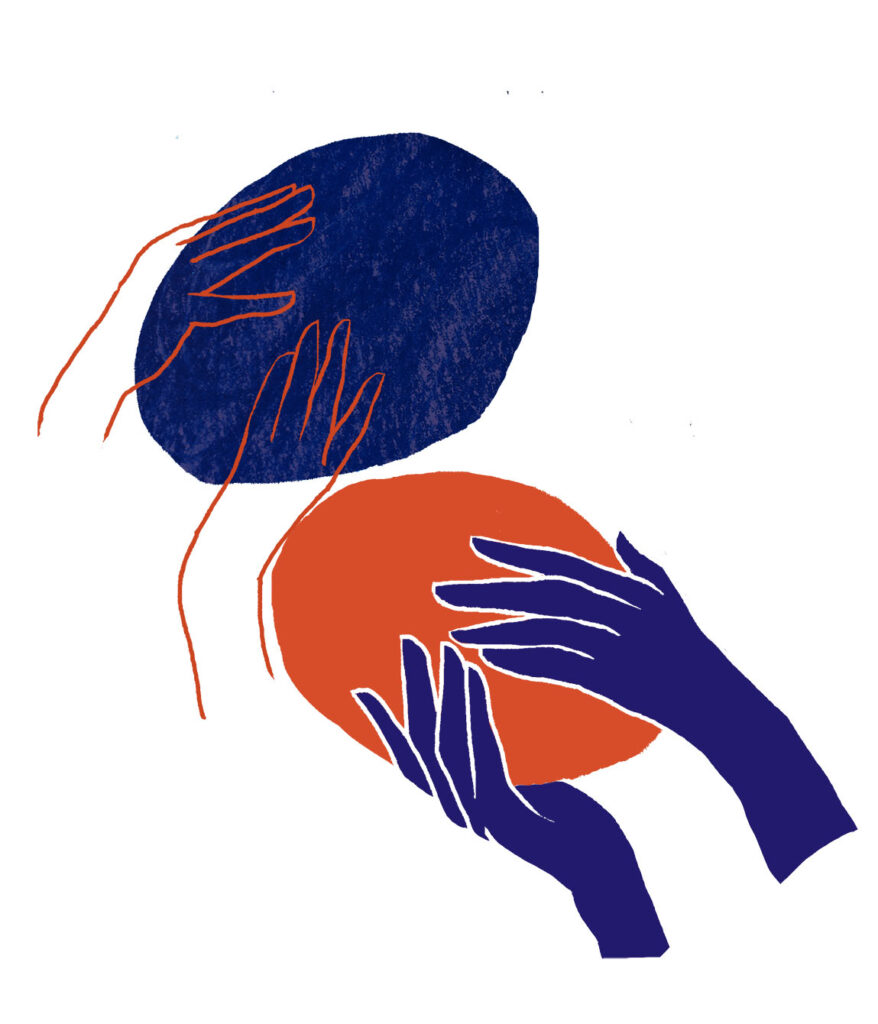Articles
Defining My Own Oppression
ISSUE 26(2): IDENTITY POLITICS
Identity politics has come to the fore as the dominant battleground of contemporary Left politics. However, what is meant by ‘identity politics’ is often poorly defined and politically contentious. I contend that the meanings and uses of identity politics have shifted from the New Social Movement era, which has led to a theoretical confusion as to how we understand identity-based organising. On the one hand, the concept of ‘identity politics’ has been tarred with the brush of essentialism, particularism and cultural determinism.[1] This can be seen as an acknowledgement of the failures of identity-politics movements to be attentive of intragroup difference, thereby unwittingly reproducing structures of dominance within the movements themselves. On the other hand, identity as ‘experience’ has become a commonly-accepted litmus test for political legitimacy in activist circles; it is a commonly accepted claim on the Left that the oppressed have a better understanding of reality because it is grounded in their identities, in their experience of oppression. Paradoxically, the simultaneous prevalence of these two seemingly-opposed claims has resulted in a confused terrain, where ‘identity politics’ is derided even as the central political importance of identity is affirmed.
Cultural Formation and Appropriation in Merchant Capitalism
ISSUE 26(2): IDENTITY POLITICS
In May 2015, Dubai Parks and Resorts, known otherwise as Dubailand, announced a new attraction that would take its place among reconstructions of villages in rustic France and Polynesia, as well as a larger-scale park inspired by the Legoland parks of southern California and Florida. The new attraction, called Bollywood Parks, inspired by the Hindi-language national cinema of India based in Mumbai, features ‘Rustic Ravine’, where ‘the heart of rural India’ is ‘recreated in all its glory’, a lifelike recreation of a Mughal palace where a Bollywood-themed musical will be performed thrice weekly, as well as ‘Mumbai Chowk, your chance to enjoy Mumbai’s famous street food’.[1]
A ‘Beautiful half hour of being a mere woman’
ISSUE 26(2): IDENTITY POLITICS
The recent rise of social media and subsequent opening–up of feminist politics has intensified decades-long debates between factions in feminist and queer movements. Many of these new conversations turn around questions of identity and are hugely important, yet also often troubling. Contemporary feminism faces a false dichotomy: should we, those whose bodies are read andenforced as female,identify with orreject the gender imposed upon us? This question cuts to the very heart of how we, as feminists, define or understand what genderis. Taking a materialist understanding, I will be discussing gender as externally produced and inherently oppressive. This is at odds with a new turn in feminism, one that I am calling soft abolitionism, which considers gender to be partially self-produced and capable of providing a framework through which to reach liberation.
Racism and the Logic of Capitalism
ISSUE 26(2): IDENTITY POLITICS
The emergence of a new generation of anti-racist activists and thinkers battling police abuse, the prison-industrial complex and entrenched racism in the US, alongside the crisis over immigration and growth of right-wing populism in Europe and elsewhere, makes this a crucial moment to develop theoretical perspectives that conceptualise race and racism as integral to capitalism while going beyond identity politics that treat such issues primarily in cultural and discursive terms. The last several decades have produced a slew of important studies by Marxists of the logic of capital as well as numerous explorations by postcolonial theorists of the narratives that structure racial and ethnic discrimination. Far too often, however, these two currents have assumed different or even opposed trajectories, making it all the harder to transcend one-sided class-reductionist analyses and equally one-sided affirmations of identity that bypass or ignore class. In light of the new reality produced by the deepening crisis of neoliberalism and the looming disintegration of the political order that has defined global capitalism since the end of the Cold War, the time has come to revisit theoretical approaches that can help delineate the integrality of race, class and capitalism.
Forging New Political Identities in the Shanty Towns of Durban, South Africa
ISSUE 26(2): IDENTITY POLITICS
The intra-elite contestation within the public sphere in South Africa has come to be shaped by intense conflict between elites organised around accumulation via the market and those organised around accumulation via the state. In ideological terms liberalism, which continues to take the form of racial capitalism, is pitted against a form of authoritarian nationalism organised around forms of clientelism that have approached kleptocratic levels.
Judaism, Zionism, and the Nazi Genocide
ISSUE 26(2): IDENTITY POLITICS
This paper explores contemporary Jewish identity-formation, identity politics, and the centrality of state-sanctioned commemoration of the Nazi genocide and Zionism – understood as the ongoing settler-colonial project aimed at the formation and maintenance of a Jewish-exclusivist state in Palestine – to both. It argues that dominant identity politics within the Jewish community are based on an understanding of identity, one which assumes it to be static and individual.
Feminism Against Crime Control
ISSUE 26(2): IDENTITY POLITICS
At the height of the Black Lives Matter movement, I had a typical interaction with a liberal. He claimed to support the protesters, at least in principle. However, he thought the police shooting of Michael Brown in Ferguson was ‘a poor choice of case’ to rally around (if only they had consulted him!). It would fail to impress ‘the public’, he claimed, because the police officer in that incident was ‘probably justified’. As evidence, he cited the media smear accusing Michael Brown of shoplifting shortly before he was gunned down. I refused to concede the shooting would have been justified even if this smear were true. Given the structural racism of the existing order of property, I argued, surely it would be a strategic dead-end to endorse police powers to attack anyone who transgressed it.[1] ‘Oh, I see’, he said, ‘so you are against the police’. Immediately he parried: ‘But suppose a man were raping a woman…’
Intersectionality and Marxism
ISSUE 26(2): IDENTITY POLITICS
In recent years, intersectionality has been discussed more than ever before. These discussions have been so frequent that some have even called it ‘hegemonic’.[1] Since the 2008 financial crisis, there has also been a renewed interest in Marxism – ‘socialism’ and ‘capitalism’ were the two most-googled words in 2009. As these two frameworks have been increasingly analysed and considered over the past decade, they have also come into contact with one another. Marxists have criticised intersectionality scholars and vice versa. But there has also been a series of interesting and important attempts to synthesise these frameworks, forging a productive and nuanced theory that is able to respond dynamically to the complexities of oppression in the twenty-first century. In particular, these debates have significantly coalesced around questions of identity politics, or the ways in which identity can, is, and should be related to the structural conditions of capitalism. In the context of debates around identity politics, having a deeper and more nuanced understanding of the history and relationship between Marxism and intersectionality, which in some ways is the contemporary paradigm for understanding identity, is absolutely crucial for contemporary activists and academics alike.
Identity and Identity Politics
ISSUE 26(2): IDENTITY POLITICS
Introduction: Identity Is a New Concept
Marxist Interventions into Contemporary Debates
For journal subscription and purchasing details, please go here. The special issue 26(2) is currently being printed, and will be available in July 2018. Individual copies will be available to purchase directly from Central Brooks (sasha@centralbooks.com).












